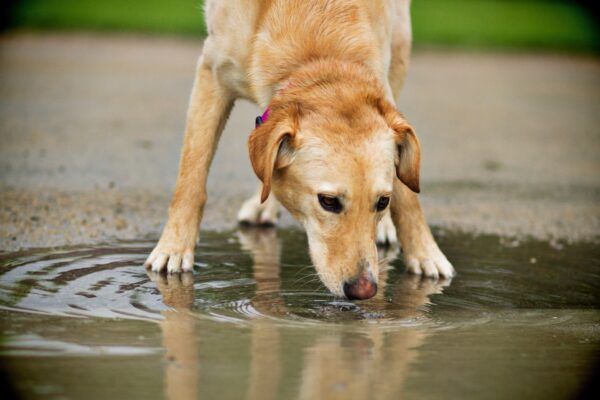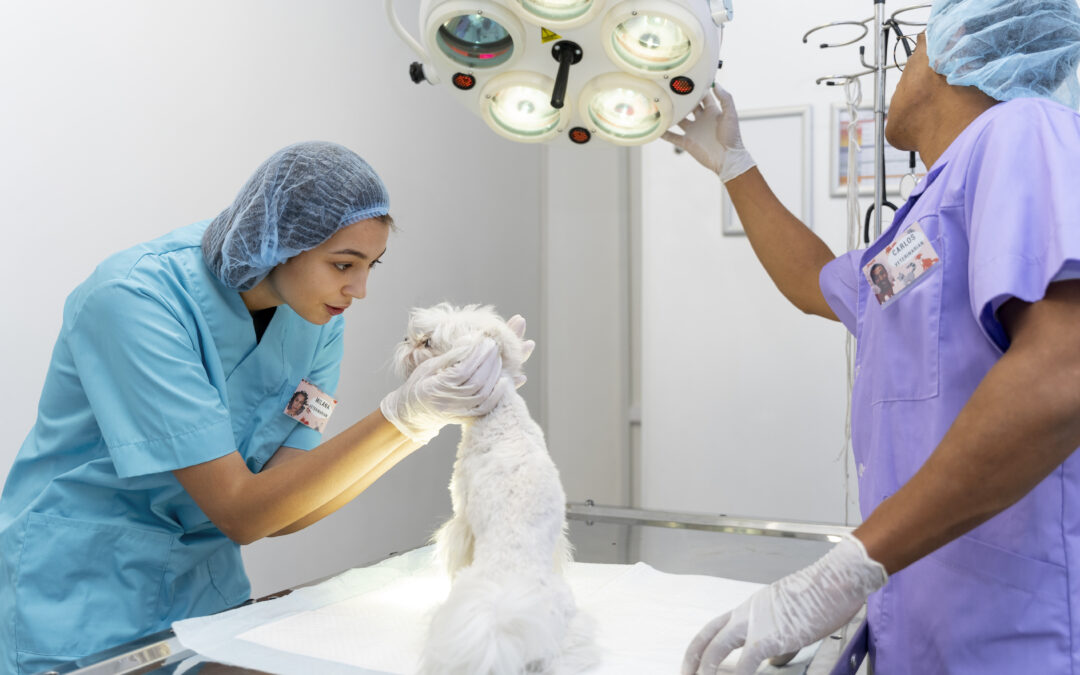With the weather getting warmer, dog owners will spend a little extra time outside with their pet this spring and summer. Early in the season, we might even forget to bring water or something for the dog to drink out of as the weather heats up. 
Do your best to plan accordingly, and don’t beat yourself up if you forget! However, one thing you should avoid is letting your dog drink out of rivers, streams, or standing puddles left from rainwater.
You may have heard people say that the rule of thumb is if the water is moving, then it’s probably OK. But even rivers and streams and ponds contain bacteria left behind from the waste of other animals that can be harmful to their health. Even in urban environments, exposure can be high through the urine of wildlife such as rats.
One thing we often see at Veterinary Urgent Care Center (VUCC) is stomach upsets from ingesting standing water like this. And sometimes we see things much more serious, like leptospirosis, commonly referred to as “lepto”.
Leptospirosis is a zoonotic bacterial disease, which can cause liver and kidney failure and sometimes death if not caught early enough. “Lepto” is transmissible through exposure to contaminated puddles, which have been exposed to the urine of infected wildlife.
Dogs who sniff the ground, go swimming, or lick puddles are all at high risk of transmission.
Luckily, there are things that you can do to prevent a more serious illness. First, you should ensure your dog is up-to-date on its vaccines. The “lepto” vaccine is a core vaccine for puppies and given initially as a two-vaccine booster series, three to four weeks apart. Following the initial series, this vaccine is recommended to be given annually.
It’s important that you have a clear understanding and documentation of your dog’s vaccination history. This will let you know if you are up-to-date on appropriate vaccines.
Secondly, do your best to keep an eye on your dog when you are outside. A small amount might not be harmful. But if left unattended, a dog will keep drinking until he or she has quenched its thirst, which can increase their risk of illness.
There’s nothing better than getting outside with your dog when the weather gets nice, so we hope you and your pet get in your exercise and enjoy the weather while we have it!
At VUCC, we can ensure that your dog has its vaccinations up to date, even if you were not a patient of ours before. We are happy to accept your scheduled appointment for vaccinations for your dogs, as we understand that wait times to get to see your primary care veterinarian can be lengthy. As an urgent care center, we do ask for your patience if a sicker dog comes in at the same time as your vaccination appointment. We will treat the sickest patients first no matter if an appointment was scheduled or if it was a walk in. Learn more or book online at our website: veturgentcare.com




